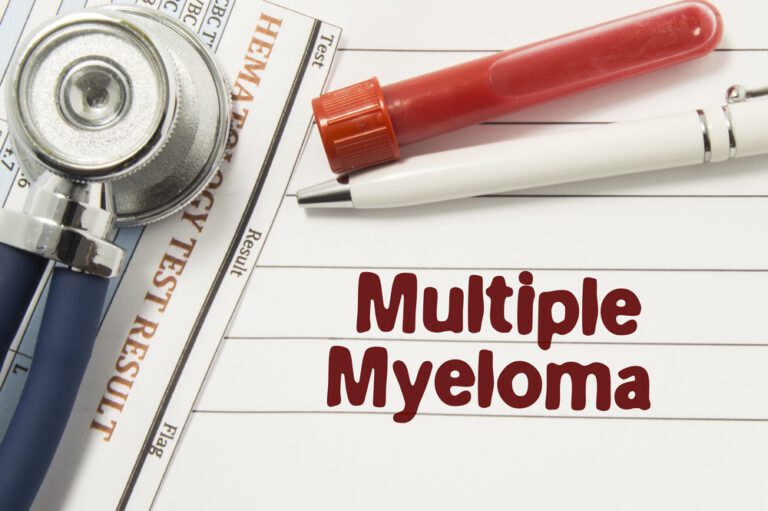Urothelial carcinoma (also known as bladder cancer) develops in the bladder’s lining.
It is the most common type of bladder cancer, affecting thousands of people each year.
Urothelial Carcinoma (Bladder Cancer) Causes
Common causes of bladder cancer include smoking, chemical/toxin exposure and family history.
Smoking is the leading cause of bladder cancer. Chemicals in tobacco smoke enter the bloodstream, then the kidneys, exposing the bladder.
Exposure to certain chemicals and toxins in the workplace can lead to urothelial carcinoma.
Additionally, those with a family history of bladder cancer may have a higher likelihood of developing the disease.
Urothelial Carcinoma (Bladder Cancer) Symptoms
The symptoms of urothelial carcinoma can vary depending on the stage and extent of the cancer.
Common symptoms include:
- blood in the urine
- frequent urination
- pain or burning during urination
- lower back pain.
In advanced stages, individuals may experience:
- weight loss
- bone pain
- swelling in the legs.
Urothelial Carcinoma (Bladder Cancer) Diagnosis
Several diagnostic tests are used to confirm urothelial carcinoma (bladder cancer), including:
- A thorough medical history and physical examination
- Urine tests to check for the presence of blood and abnormal cells.
- Imaging tests, such as ultrasound, CT scans, or MRI (to visualize the bladder and surrounding tissues).
- Cystoscopy, a thin tube with a camera is inserted into the bladder to examine its lining and collect tissue samples for further analysis.
Urothelial Carcinoma (Bladder Cancer) Treatment
Treatment depends on the stage of cancer, health of the patient and other factors.
Treatment options may include:
- Surgery (transurethral resection, partial or complete removal of the bladder)
- Radiation therapy
- Chemotherapy
- Immunotherapy
- And or a combination of these treatments.
As with most cancers, early detection and diagnosis of is key to these treatments being effective.
If you or a loved one are experiencing symptoms that may be bladder cancer, it is important that you seek the help immediately for a proper diagnosis as the signs and symptoms noted above may be related to other health issues.








